
A Professional's Guide to Contemporary Interior Design
In the ever-evolving world of interior design, one style that continues to capture attention and admiration is the contemporary design.
With its sleek lines, minimalist aesthetic, and emphasis on functionality, contemporary interior design offers a refreshing and modern approach to transforming living spaces.
Our in-house interior stylist, Adrika, shares all you need to know about contemporary interior design. From understanding the key elements that define this style to expert tips on furniture selection and creating the perfect ambiance, this guide will serve as your go-to resource.
For Adrika, no two homes are ever the same. With clients’ narratives always at the forefront, it’s her passion to help bring spaces to life! With a wealth of design knowledge built up over the last 8 years in the Interior Design industry, Adrika has styled thousands of homes - between Australia and Singapore!
What is a contemporary interior design style?
The word ‘contemporary’ doesn’t actually refer to a specific style, but rather a movement. It embraces the essence of the present moment, a reflection of the "now," combining elements of modernism with a touch of sophistication.
This design style came about in the 1970s after the mid-century modern movement. The style consisted of a mixture of various popular aesthetics at the time, including modernism and postmodernism.
So, what is the contemporary design style today?
“Over time, the style has taken on its own meaning, showcasing current and popular designs of the moment,” Adrika shares. “Homeowners and design professionals who lean towards the contemporary style focus on creating a look that is on-trend and in style with the times. What might look like contemporary styles today, may look different in years to come.”
Key characteristics of contemporary interior design
Even with its on-trend nature, there are some key characteristics that bring the look together:
Open spaces and functionality: Contemporary interiors usually feature open floor plans, uncluttered spaces, and lots of natural light
Clean straight lines: This design favours clean lines that create a sense of simplicity and visual harmony
Neutral colour palettes: Neutral colour palettes are commonly used to highlight the architecture of the home
Statement chandeliers or pendant lights: These hanging lights create focal points in a contemporary home
Contemporary vs modern interior designs
“A common question I get asked is if modern and contemporary interior designs are the same,” adds Adrika.
“While they can be similar, they are not the same.”
Contemporary interior design is fluid, ever-changing, and a mix of what’s currently trending - which can also include modern touches. This is why you often see ‘modern contemporary’ interior designs in many homes.
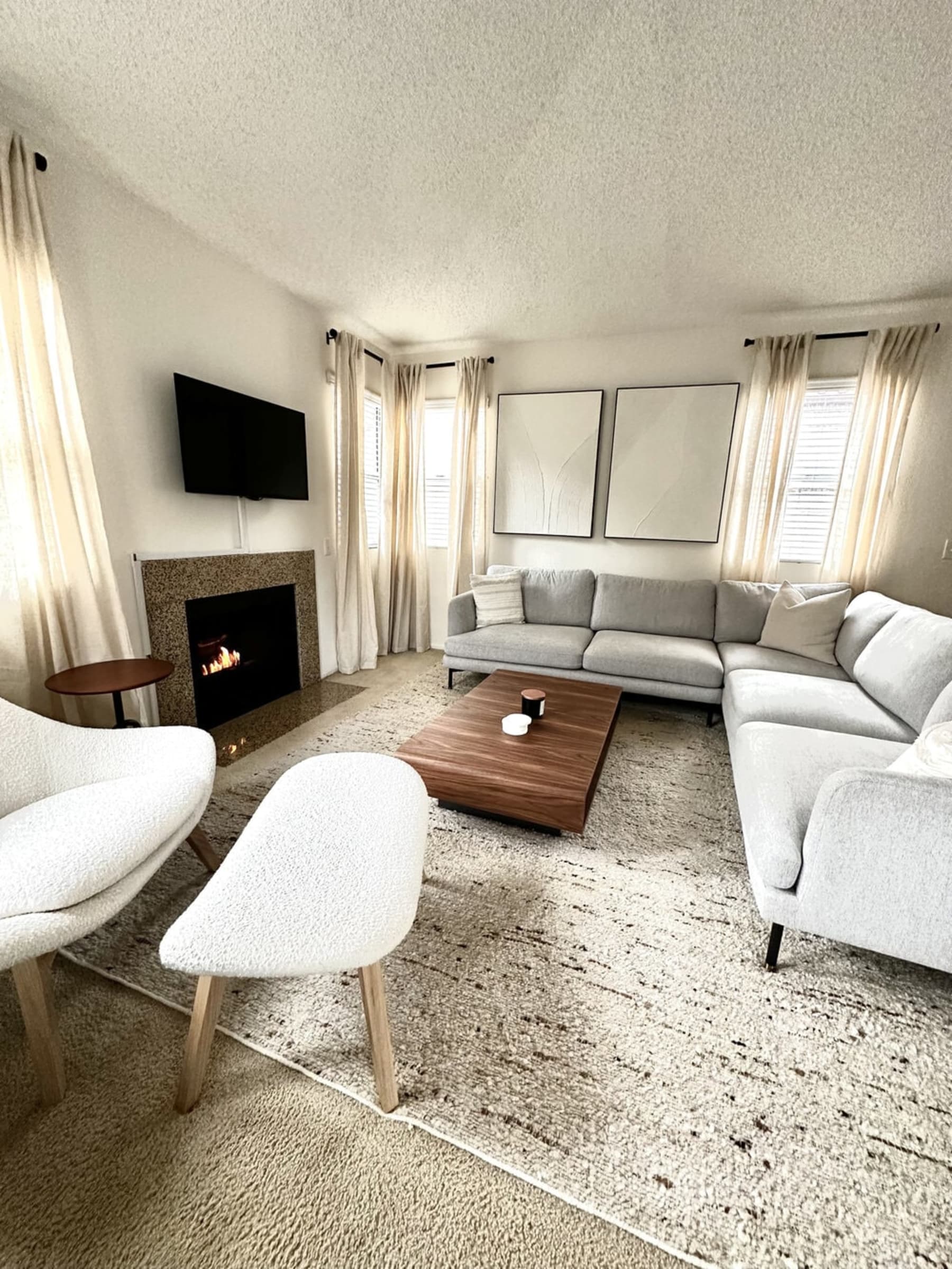
@zahraa_hberro’s humble abode boasts a modern contemporary interior. Pictured: The Pebble L-Shape Sectional Sofa, Gable Bouclé High Armchair and Ottoman Set, Peri Coffee Table, and Desi Wool Area Rug.
On the other hand, modernism is a style that has already been established. “Modern interior design tries to replicate design styles from the early to mid-20th century.”
Contemporary interior design styling tips
Keep it simple
“When it comes to contemporary interiors, it’s common to overdo it as you’re trying to incorporate different trends into one space,” she shares. “The key is to keep it simple and focus on incorporating 2 or 3 interior trends that blend well together.”
Adrika shares that a good way to start is to focus on the bigger pieces, like your sofas or dining tables. As larger pieces tend to be the focal point of the space and hence the most important, it makes it easier to create a contemporary style around them.
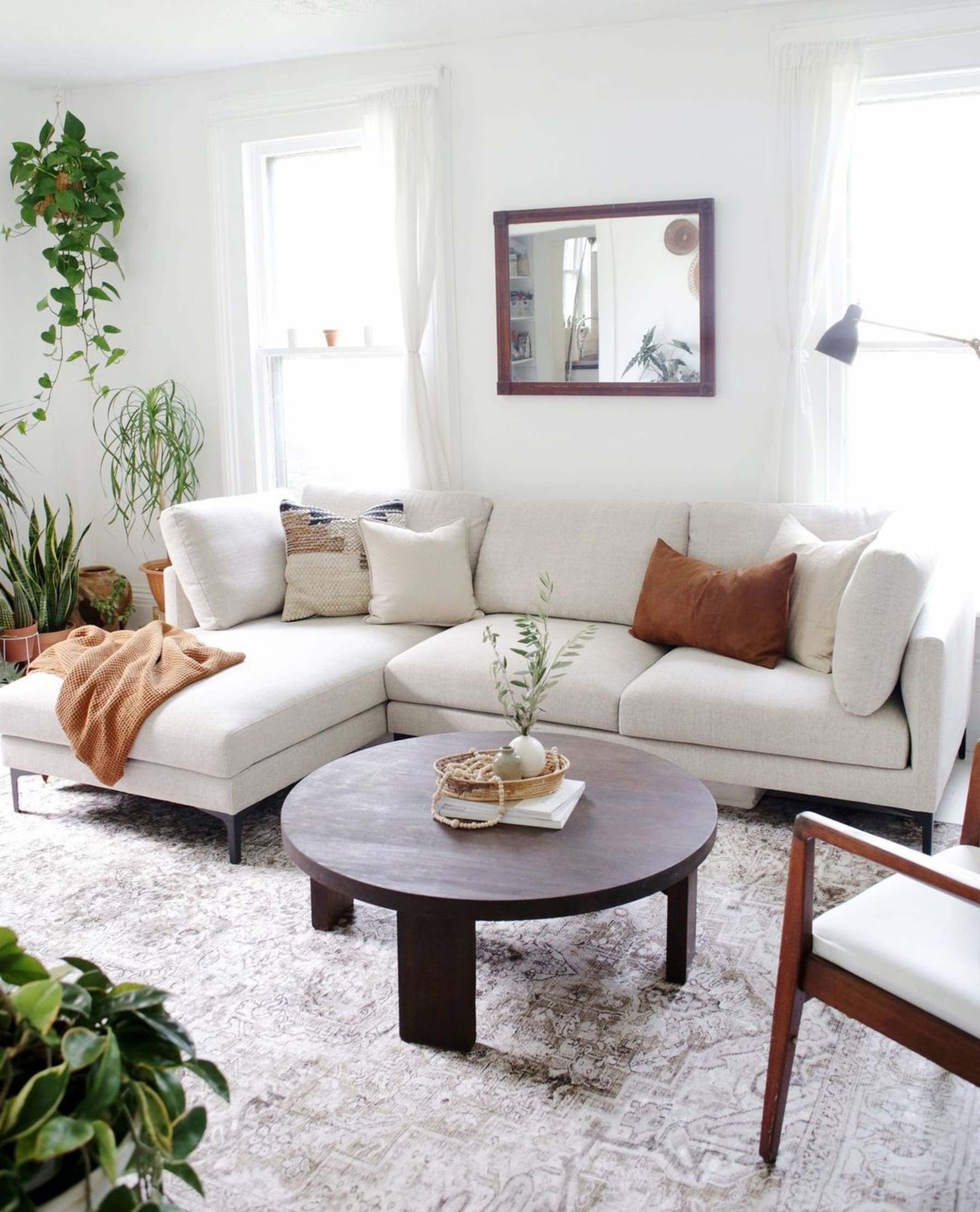
The Adams Chaise Sectional Sofa boasts sleek lines and a tailored silhouette.
For example, if you’ve opted for a sofa with a tailored silhouette like this Adams Chaise Sectional Sofa, look for matching or complementary designs with sleek profiles. Consider a minimalist coffee table like this Peri Coffee Table, or a sideboard like the Sawyer Sideboard to complement the sofa’s style.
To help you visualise how all these pieces can fit to create a contemporary interior, we used Castlery’s room designer tool to create a mockup:
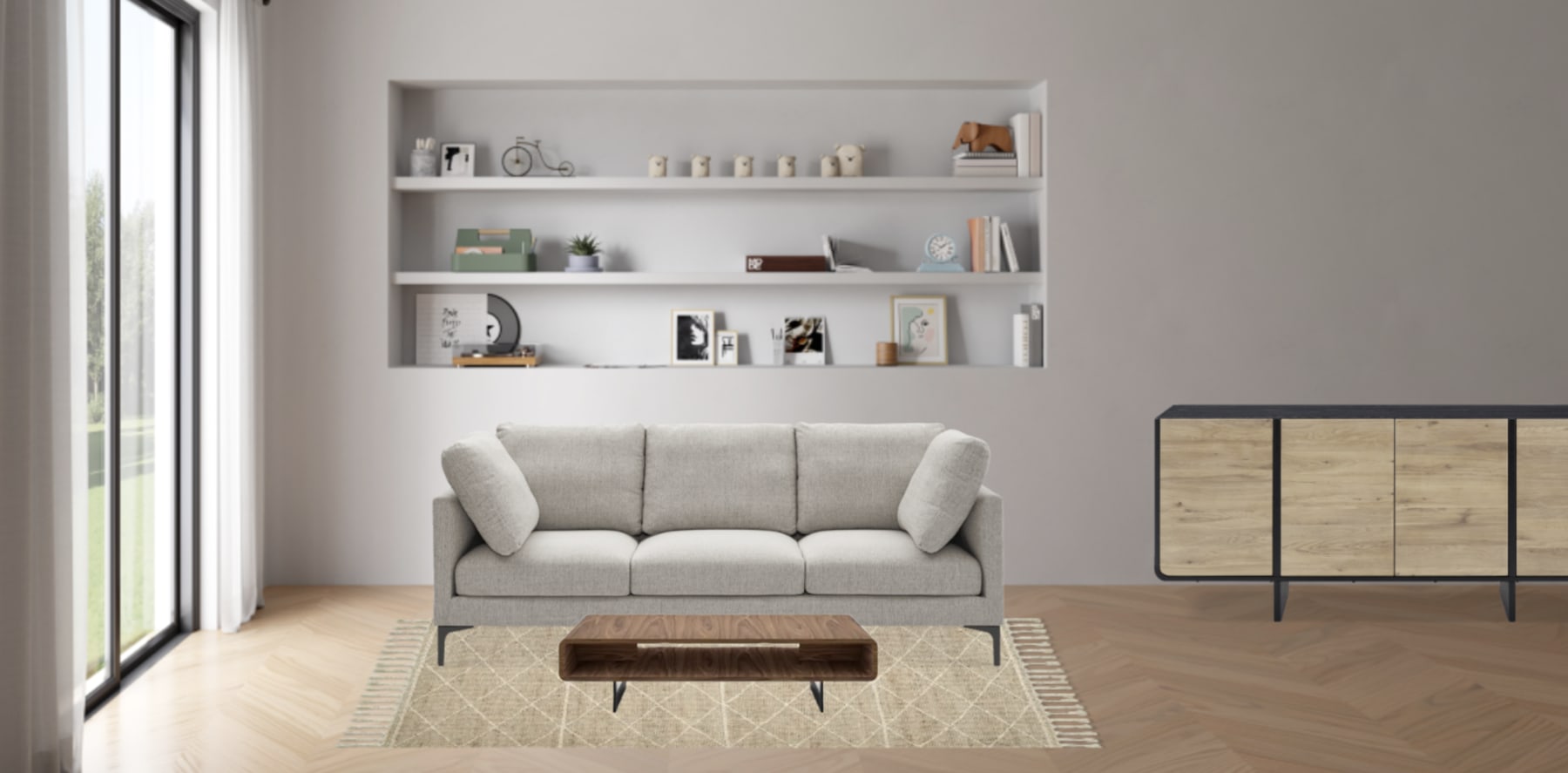
Use Castlery’s room designer tool can help you visualise the room of your dreams!
Stick to a neutral colour palette
To achieve a contemporary aesthetic, stick to a more neutral colour palette in your home. Neutral colours like white, beige, and grey are commonly used as a base in contemporary design for larger focuses in the room - think walls, sofas, and dining tables.
Furthermore, neutral colours have a timeless quality that transcends trends and fads. With the ever-changing nature of contemporary designs, neutral palettes can stand the test of time and remain relevant even with changes in interior styles.
“Don’t be afraid to introduce pops of colour through artworks, or add statement pieces like accent chairs,” Adrika remarks. “The neutral backdrop of the larger pieces provides a canvas for bolder accents to shine, maintaining balance in the room.”
Create contrast with metals
Mixing metals is encouraged in a contemporary design as it adds contrast and a touch of sophistication to the space. You can introduce warm and cool tones or different finishes such as brushed, polished, or matte, to create a balanced and dynamic space.
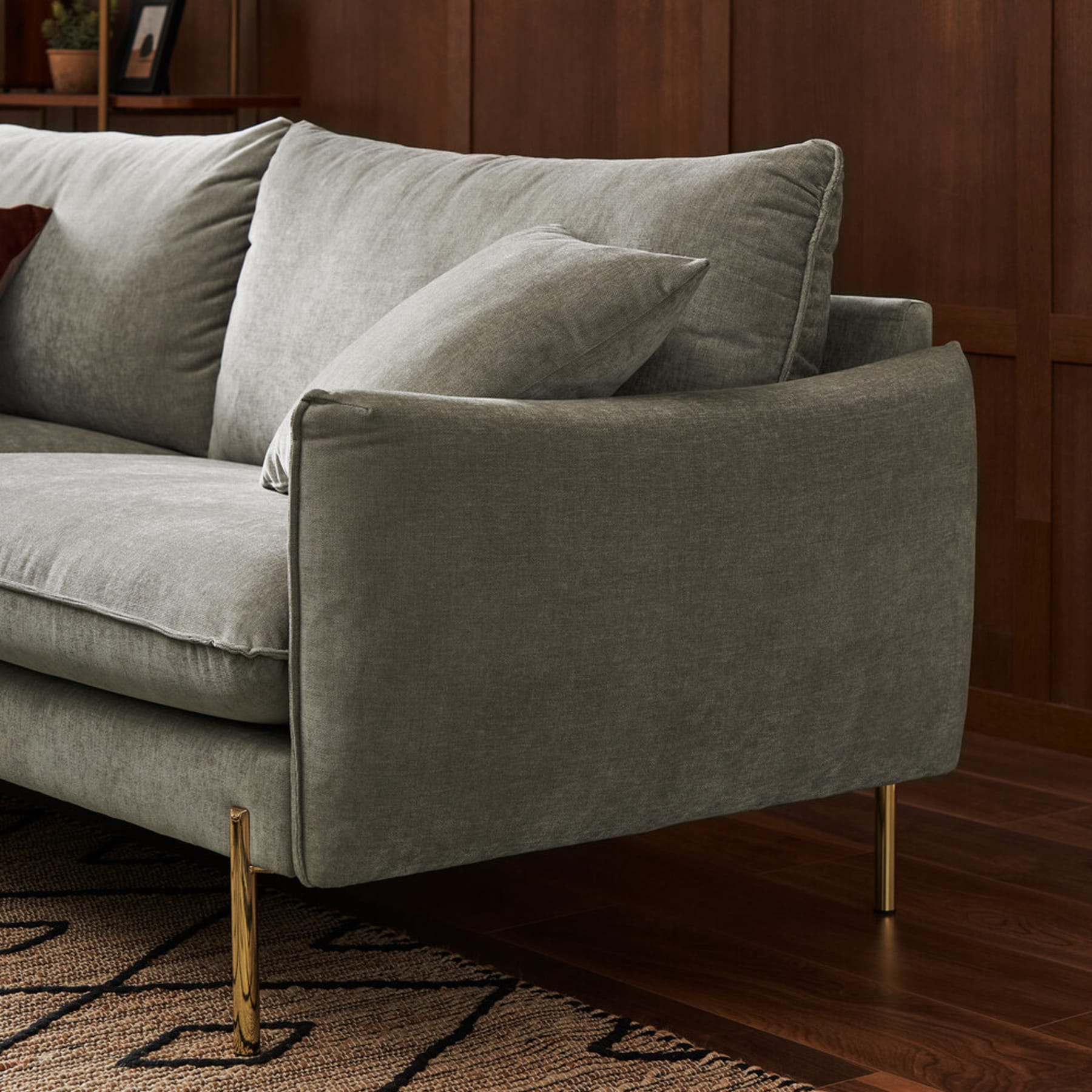
The Verona Sofa has slim metal legs that would fit well in a contemporary home.
Adrika recommends that you combine different metals like stainless steel, brass, or bronze to infuse the contemporary style with a sleek and modern edge.
Incorporating curves
“Even though contemporary interior designs feature straight lines, curves are a current trend that will naturally fall into this design style,” says Adrika.
Furthermore, curves have a natural ability to soften the sharp edges and straight lines often found in contemporary design. They also create contrast as the juxtaposition of straight lines and curves adds complexity to the space, making it visually captivating.
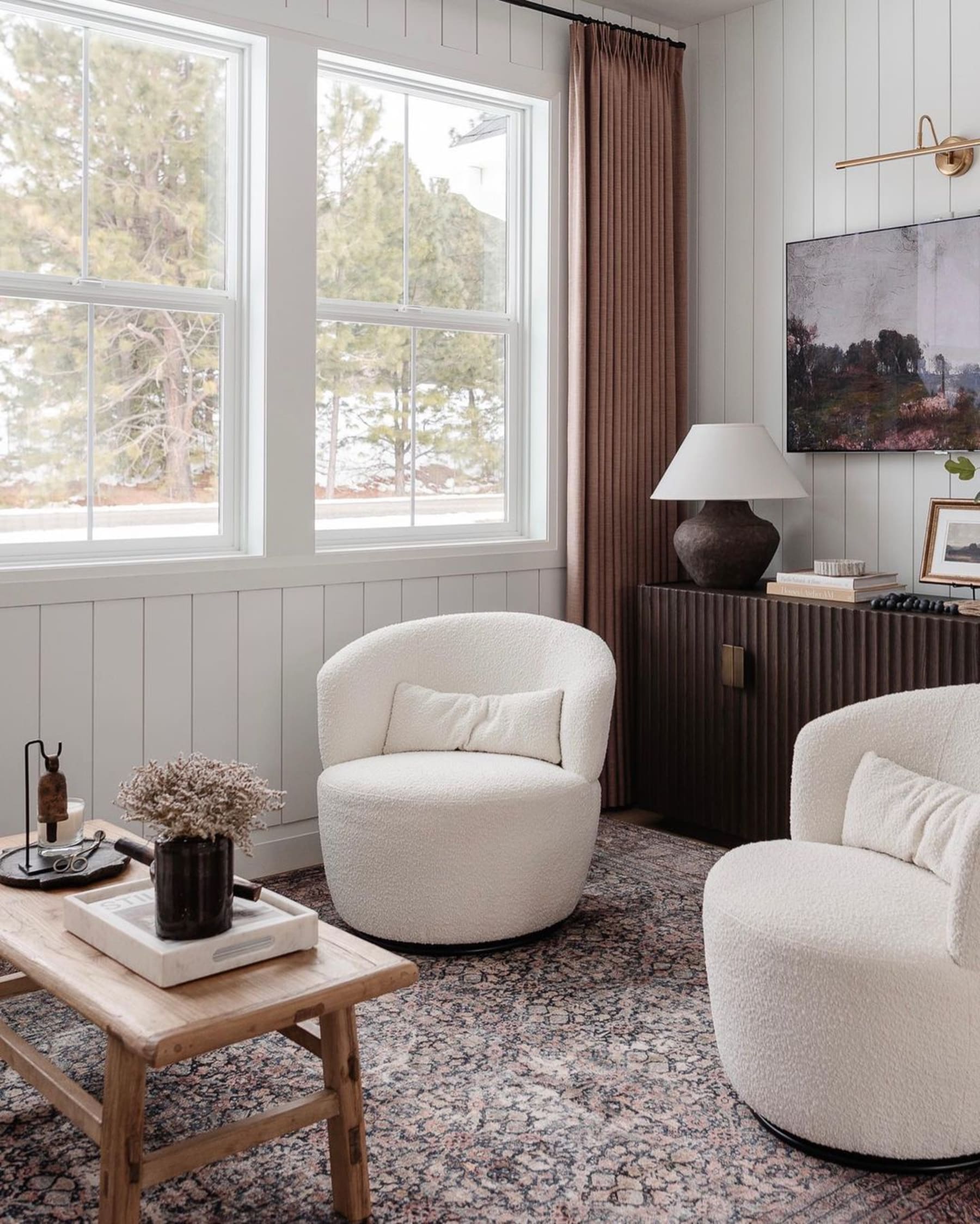
The Amber Bouclé Swivel Chair in Snow has a curvaceous backrest to cocoon you in its plush seat. Picture credits: @lindseypedey
“Don’t be afraid to incorporate curves into your interior design, like curved sofas and armchairs, wall lights with curved shades, and even arched doorways and windows.”
Use of natural materials
“Contemporary design embraces the use of natural materials, such as wood, leather, and stone, as well as adding plants.” These elements add warmth, texture, and depth to the space, contributing to a harmonious and balanced environment.
Use wooden furniture, panelling, or beams to add an organic charm to the space. The natural grain and texture of the wood create a more authentic and rustic look. Stone elements like marble or granite are also great additions, bringing a sense of luxury to the contemporary design.
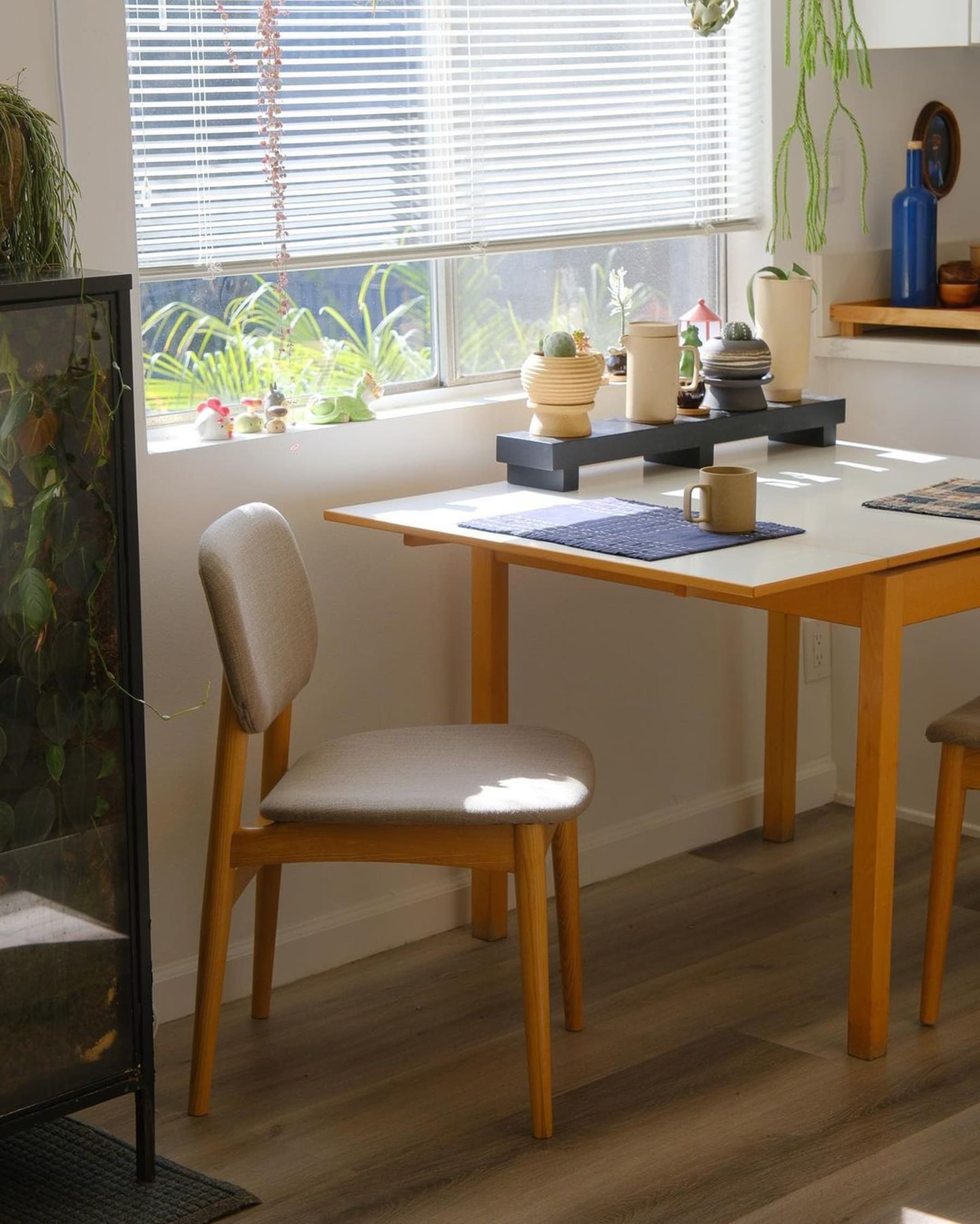
Wooden accents on the Kelsey Chair in Natural Ash create a good balance in a contemporary space. Picture credits: @benji_plant
Introduce indoor plants to your space to add freshness and a pop of colour. If you have limited space to work with, consider hanging planters or terrariums so you don’t take up valuable floor space.
Ensure a well-lit environment
Contemporary design often seeks to maximise natural light and create bright, airy spaces. “Natural light creates a bright, open, and welcoming atmosphere that aligns well with contemporary design principles,” shares Adrika.
Allow light to enter the space as much as possible by opting for large windows, glass doors, and sheer curtains. As the neutral colour palette also reflects light, this can make your interior appear larger and more spacious.
The contemporary interior design style stands out as a timeless and sophisticated choice. Whether you're revamping your entire home or adding contemporary touches to specific areas, we hope this guide has equipped you with the knowledge to create a space that reflects the modern era while providing comfort and beauty for years to come.
If you need more help visualising how the contemporary interior can work for you, check out Castlery’s room designer tool! This tool allows you to bring your imagination to life by placing different furniture pieces and customising colours to suit the contemporary interior design. Try it out today!